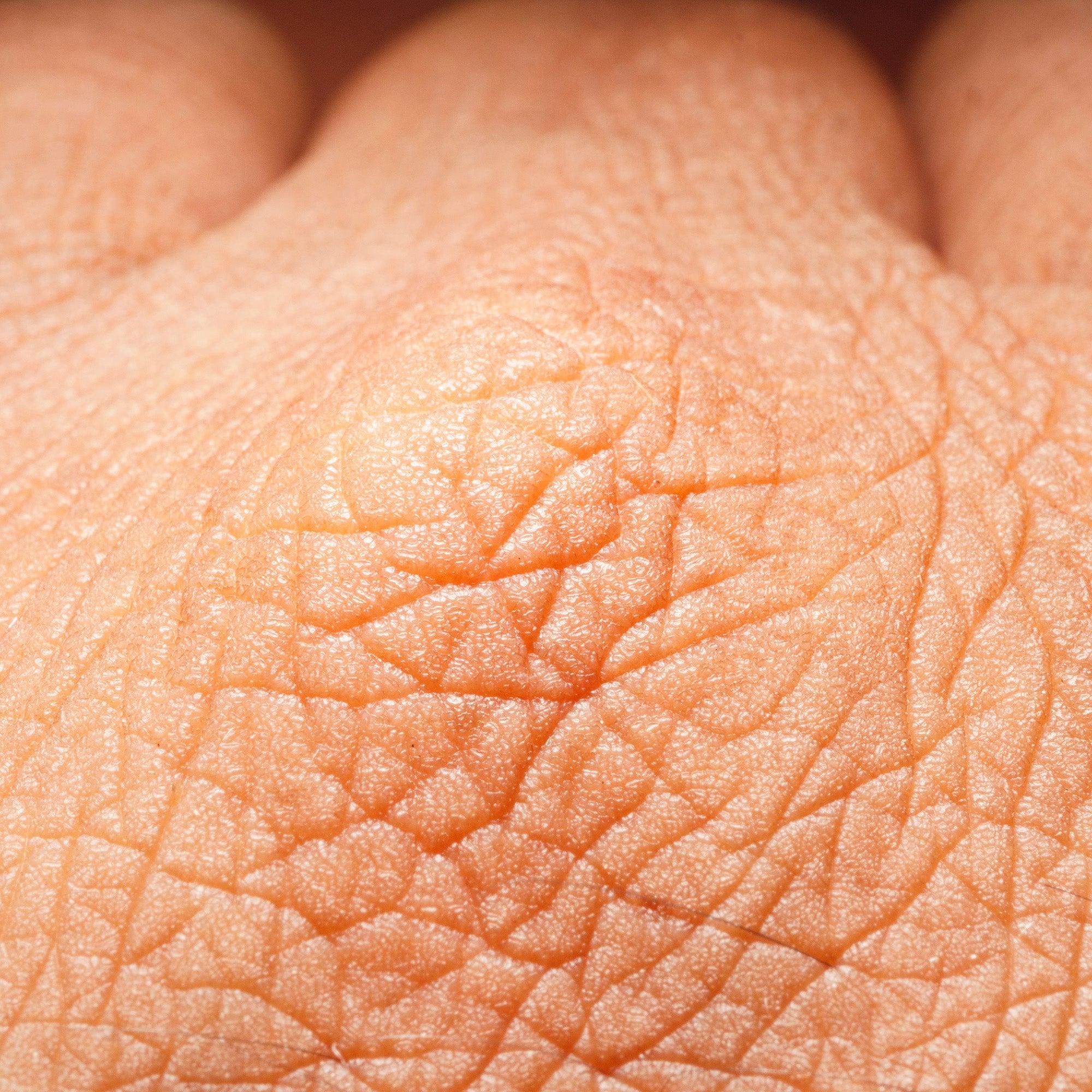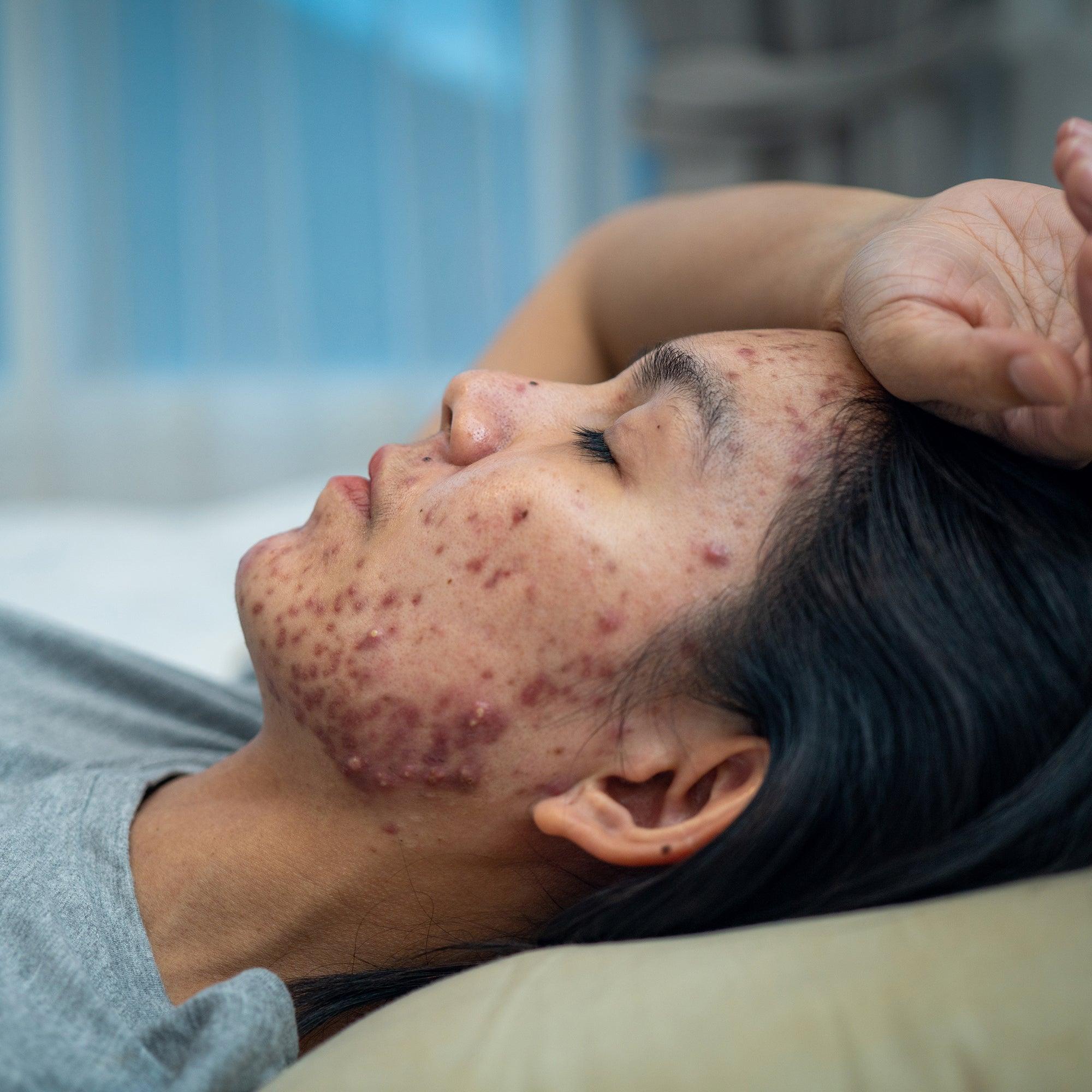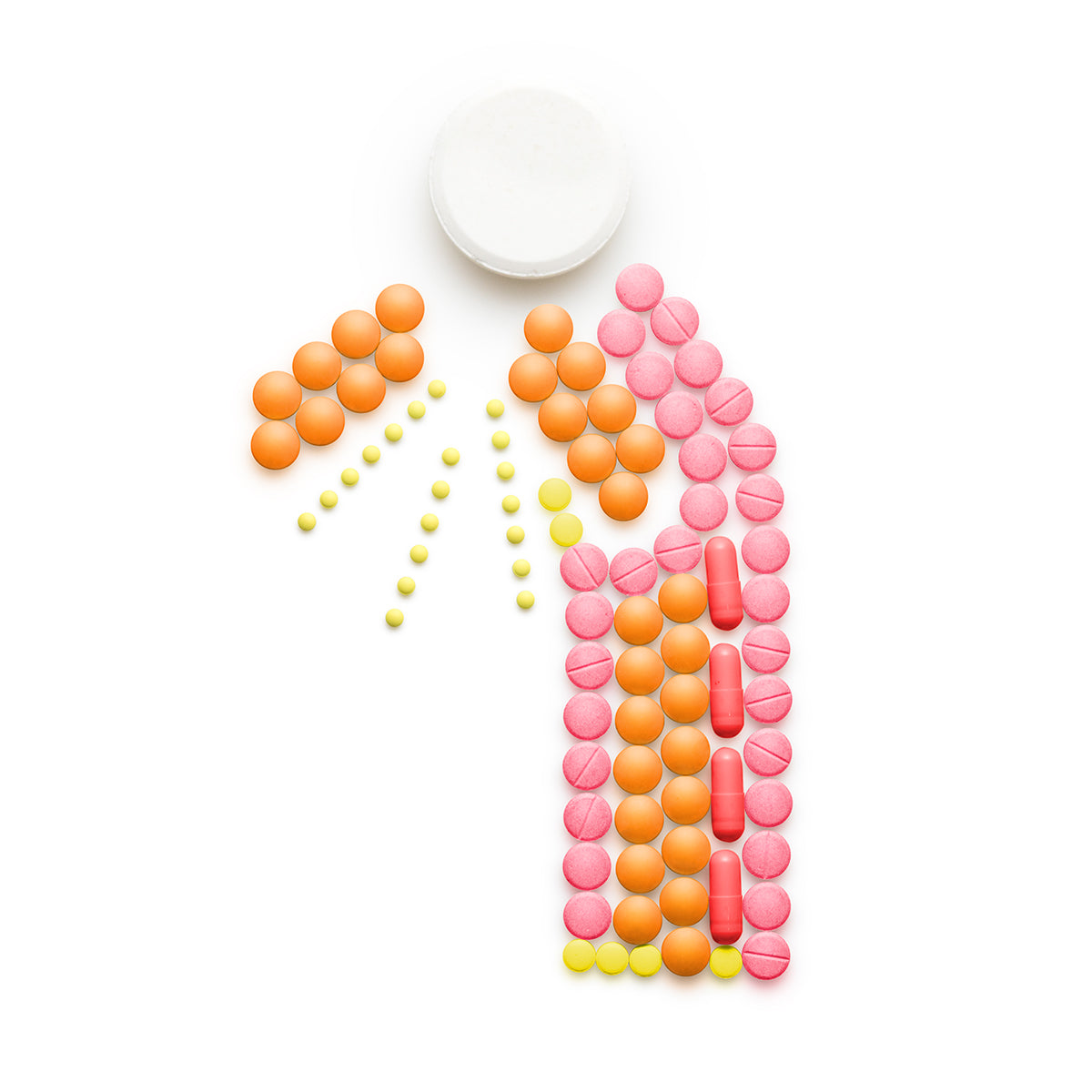Dry skin - No thank you!

In today's modern society, our skin has become increasingly dehydrated. One of the main factors behind this moisture loss is Transepidermal Water Loss (TEWL). Here we will go through what TEWL is, why it is important, and how we can manage it to improve our skin health.
First and foremost, what is TEWL?
TEWL stands for Transepidermal Water Loss. It is a measure of the amount of water that evaporates from the skin through the epidermis, the outermost layer of skin. TEWL is an important parameter when it comes to the skin's barrier function.
Why is TEWL exceptionally important when we talk about achieving hydrated skin?
TEWL is crucial for understanding how well our skin can retain moisture and function as a protective barrier. A low TEWL indicates a well-functioning skin barrier that effectively prevents water loss and keeps the skin hydrated. On the other hand, a high TEWL may indicate a damaged or weakened skin barrier, which can lead to dryness, irritation, and increased sensitivity. This is especially important in today's society where environmental factors and lifestyle choices can negatively impact skin health.
TEWL can be measured with special instruments that use sensors to assess the moisture level evaporating from the skin's surface. These measurements are common in dermatological research. By measuring TEWL, researchers can assess skin health.
There are several different factors that affect TEWL. Some of the main influencing factors include:
1. Skin diseases: Conditions such as eczema and psoriasis can increase TEWL by damaging the skin's barrier function.
2. Environmental factors: Low humidity, cold, wind, and overexposure to UV radiation can increase TEWL.
3. Irritants: The use of harsh soaps, excessive exfoliation, and products with drying ingredients can weaken the skin barrier.
After 12 years in the skincare industry, I thought I had a good understanding of the skin's complex structure and function. However, when I encountered the skin's endocannabinoid system (ECS), everything changed. One of the most remarkable and almost incredibly interesting aspects of the ECS is that this system is directly responsible for how much or how little TEWL our skin experiences.
As I have described in many previous blog posts, the endocannabinoid system plays a very important role in regulating many physiological processes in the body, including skin homeostasis. Research has shown that the ECS can also affect TEWL by influencing the skin's barrier function and moisture balance. Here are some ways in which the ECS can affect TEWL:
1. Skin barrier function: Endocannabinoids such as anandamide (AEA) and 2-arachidonoylglycerol (2-AG) bind to cannabinoid receptors (CB1 and CB2) in the skin and regulate the function and differentiation of keratinocytes (skin cells). This can affect the skin's ability to retain moisture and prevent water loss.
2. Regulation of sebum production: The ECS influences the sebaceous glands and their production of sebum, the natural oils that help keep the skin hydrated and serve as food for the skin's good microbes (bacteria, viruses, fungi, protists, etc.). An optimal level of sebum helps reduce TEWL by forming a protective film on the skin's surface.
3. Inflammation and skin diseases: Inflammation can increase TEWL by damaging the skin's barrier function. The ECS has anti-inflammatory properties and can help reduce inflammation in the skin. By modulating inflammatory processes, the ECS can help maintain an intact skin barrier and thus reduce TEWL.
4. Skin stress and healing: The ECS is involved in the skin's response to injury and stress. It can help promote healing and restore the skin's barrier function after damage, which can reduce TEWL.
In addition to the function of the endocannabinoid system, there are several other lifestyle factors that can affect TEWL in the skin:
1. Diet and nutrition: A balanced diet rich in antioxidants, vitamins (especially A, C, and E), minerals, and fatty acids (especially omega-3 and omega-6) can strengthen the skin's barrier function and reduce TEWL. A deficiency in essential nutrients can weaken the skin barrier and increase water loss.
2. Hydration: Drinking enough water is crucial for maintaining the skin's moisture balance. Dehydration can lead to dry skin and increased TEWL. Staying well-hydrated helps the skin maintain its elasticity and barrier function.
3. Environmental exposure: Exposure to extreme weather, such as cold, wind, and low humidity, can increase TEWL by damaging the skin's barrier and increasing evaporation. Protecting the skin from such environmental factors by using protective clothing, for example, reduces the risk of excessive TEWL.
4. Skincare routines: The use of harsh soaps, excessive exfoliation, and products containing alcohol or other drying ingredients can damage the skin's barrier and increase TEWL.
5. Stress and sleep: Chronic stress and lack of sleep can negatively impact skin health by disrupting hormonal balance and the immune system, which can lead to a weakened skin barrier and increased TEWL. Managing stress and getting enough sleep are therefore important for maintaining healthy skin and reducing water loss.
Even a healthy microbial diversity on the skin, meaning a balanced microbiome, has a positive impact on transepidermal water loss (TEWL). This is because microbial diversity supports the skin's barrier function and overall health. Here are some ways in which rich microbial diversity can affect TEWL:
1. Strengthening the skin barrier: A varied and balanced microbial diversity helps strengthen the skin's barrier function. The beneficial bacteria on the skin contribute to maintaining an intact and functional skin barrier, which reduces water loss.
2. Protection against pathogens: A healthy microbial diversity competes with harmful microbes (pathogens) for space and nutrients on the skin surface. By keeping harmful pathogens in check, a high microbial diversity prevents infections and inflammations that can damage the skin barrier and increase TEWL.
3. Regulation of inflammation: Beneficial bacteria on the skin can have anti-inflammatory properties and help modulate and enhance the immune system. This can reduce the risk of inflammatory skin conditions such as eczema and psoriasis, which are often associated with increased TEWL.
4. Production of protective substances: Some microbes on the skin produce substances like lipids and antimicrobial peptides (AMPs), which help maintain the skin's moisture and barrier function. These substances can help prevent water loss and protect the skin from damage.
5. Improvement of the skin's hydration: A healthy microbiome can support the skin's natural hydration processes by contributing to a balanced production of sebum and other moisture-retaining factors. This helps maintain the skin's moisture balance and reduce TEWL.
So, what conclusions can we draw from all this?
If you want healthy and hydrated skin, the key is to reduce TEWL. The endocannabinoid system in the skin is directly and indirectly responsible for how much TEWL your skin experiences. This is because the ECS influences both the skin's own moisture production and sebum production and quality. This, in turn, leads to better microbial diversity and a lower risk of excessive TEWL.
If you use skincare that supports the skin's ECS, drink enough water, maintain a stable sleep cycle, eat a nutritious diet, and stop stressing the skin with substances that should not naturally be there, you give your skin the best possible chance to reduce excessive TEWL.
Sources:
https://en.wikipedia.org/wiki/Transepidermal_water_loss
https://pubmed.ncbi.nlm.nih.gov/30348333/
https://pubmed.ncbi.nlm.nih.gov/30022486/
https://pubmed.ncbi.nlm.nih.gov/11428940/
https://pubmed.ncbi.nlm.nih.gov/1845280/
https://pubmed.ncbi.nlm.nih.gov/31350927/
https://www.sciencedirect.com/topics/immunology-and-microbiology/skin-water-loss




Comments